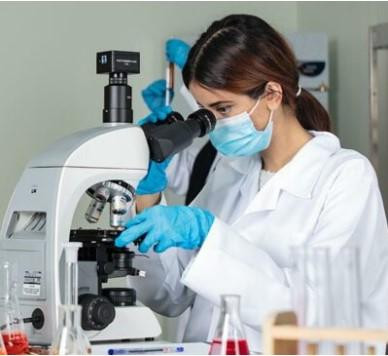The field of healthcare relies on precision and expertise to diagnose, treat, and prevent diseases effectively. A Bachelor’s Degree in Medical Laboratory Science (MLS) plays a pivotal role in preparing skilled professionals to provide accurate diagnostic services. If you’re passionate about science, technology, and healthcare, earning this degree can open doors to a rewarding and impactful career.
What is Medical Laboratory Science?
Medical Laboratory Science involves the analysis of biological samples to detect and monitor diseases. Professionals in this field, known as medical laboratory scientists or clinical laboratory technologists, work behind the scenes to provide critical data that guides patient care.
Why Choose a Bachelor’s Degree in Medical Laboratory Science?
Specialized Knowledge and Skills
A bachelor’s degree equips students with in-depth knowledge of laboratory techniques, microbiology, biochemistry, hematology, immunology, and molecular diagnostics.
Hands-On Training
The program typically includes clinical practicums, allowing students to gain practical experience in real-world healthcare settings.
High Demand for Professionals
Medical laboratory scientists are essential in hospitals, research labs, and diagnostic centers, leading to strong job prospects.
Pathway to Advanced Careers
A bachelor’s degree can be a stepping stone to roles in laboratory management, research, or further studies in medicine or specialized areas.
Key Components of an MLS Bachelor’s Degree Program
Core Subjects
Clinical Chemistry
Hematology
Microbiology
Immunology
Molecular Diagnostics
Laboratory Training
Students gain proficiency in operating advanced lab equipment and performing diagnostic procedures.
Internship Opportunities
Clinical rotations in hospitals or diagnostic labs provide real-world experience and professional networking opportunities.
Certification Preparation
Many programs prepare graduates for certification exams such as the American Society for Clinical Pathology (ASCP) Board of Certification.
Career Opportunities with an MLS Degree
Graduates with a Medical Laboratory Science bachelor’s degree can pursue various roles, including:
Medical Laboratory Scientist: Perform diagnostic tests and analyze results in hospitals or clinics.
Research Scientist: Contribute to advancements in medicine and public health.
Lab Manager: Oversee laboratory operations and staff.
Forensic Scientist: Apply lab techniques to criminal investigations.
Biotechnology Specialist: Work in industries developing pharmaceuticals or medical devices.
Benefits of Pursuing an MLS Degree
Job Stability
The healthcare industry consistently requires skilled laboratory professionals, ensuring job security.
Competitive Salaries
Medical laboratory scientists earn attractive salaries, with potential for growth in specialized roles.
Global Opportunities
The skills gained are transferable, allowing graduates to work in healthcare systems worldwide.
Meaningful Impact
Contributing to accurate diagnoses and patient care offers a fulfilling sense of purpose.
Is an MLS Degree Right for You?
You might thrive in a Medical Laboratory Science program if you:
Enjoy problem-solving and critical thinking.
Have a strong interest in biology and chemistry.
Appreciate detail-oriented and hands-on work.
Are passionate about improving patient outcomes.
Choosing the Right MLS Program
When selecting a bachelor’s degree program, consider the following factors:
Accreditation: Ensure the program is accredited by relevant bodies, such as the National Accrediting Agency for Clinical Laboratory Sciences (NAACLS).
Curriculum: Look for a comprehensive curriculum with clinical training.
Location: Consider proximity to healthcare facilities for better internship opportunities.
Career Support: Opt for programs with strong job placement rates and alumni networks.
for more info :-
Medical Laboratory Science Bachelor Degree
Bachelor Of Mass Communication Abu Dhabi





Comments